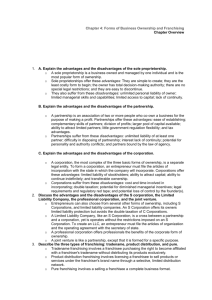Conv 2010 : International Summit - International Expansion Strategies
advertisement
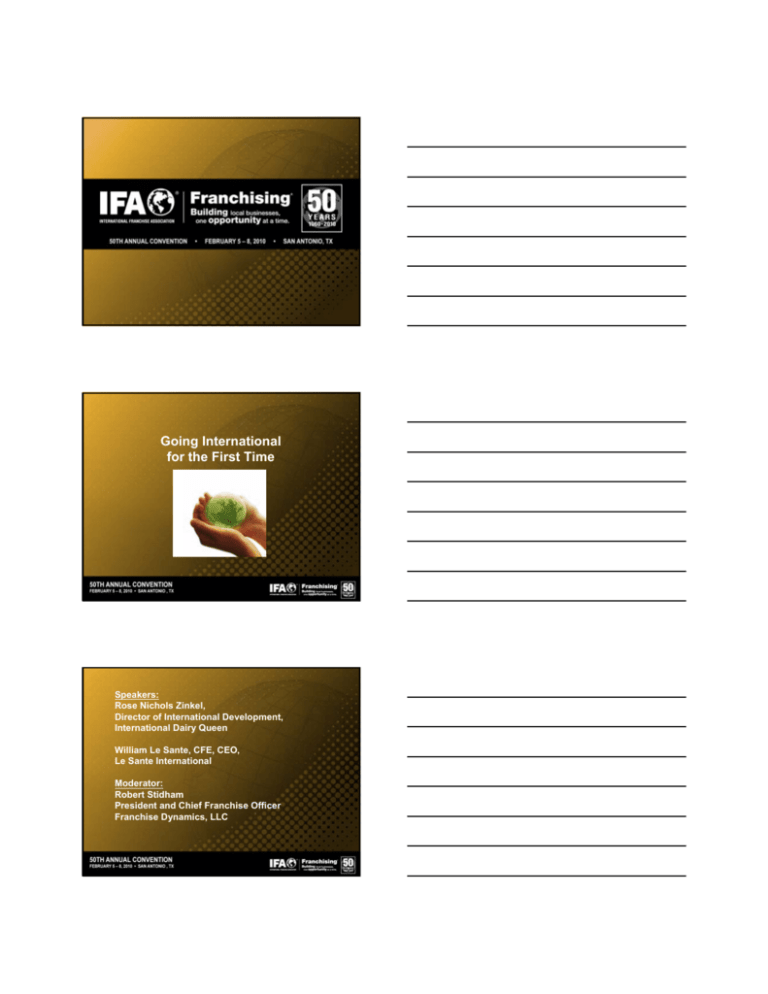
Going International for the First Time Speakers: Rose Nichols Zinkel, Director of International Development, International Dairy Queen William Le Sante, CFE, CEO, Le Sante International Moderator: Robert Stidham President and Chief Franchise Officer Franchise Dynamics, LLC Focus of Our Discussion • When to consider international expansion • Checklist prior to launching your international program • Potential ways to enter foreign markets • Identifying which countries might be right for your brand • Identifying and qualifying international candidates • Costly mistakes to avoid • Questions and discussion Quick Survey of our Audience • Your company is not yet franchising • You franchise in the US and are considering international expansion • You already franchise internationally • You’re lost and wanted into this room . . . When Should you Consider International Expansion? • Being opportunistic versus realistic • Franchising “what you know” • Integrate international development into your business planning process – For most young franchisors, the US market offers the greatest and easiest opportunity – Ensure your domestic and international strategies complement rather than compete with each other Questions to Ask Before Committing to an International Development Strategy? • Do we understand the commitment that is required in terms of time, resources and people? • Is our product or concept well suited to international markets? • Does our management team have any experience outside our home country? • Have we completed a thorough business plan? Checklist Prior to Going International ¾ Ownership commitment to international development ¾ Designate an internal champion who will focus on your international strategy ¾ Business plan identifying your intended strategy and resources ¾ Preliminary list of targeted countries ¾ International lead generation strategy ¾ Initial trademarks filed in targeted markets ¾ Franchise attorney with strong international experience ¾ A plan to educate your team on their responsibilities International Development Strategies • A variety of options are available for international expansion, including – Direct entry via company-owned operations – Joint-venture relationship – Direct Single-unit franchising – Area development franchising – Master franchising – Some combination of the above . . . International Development Strategies • The strategy you select may depend on: – Which countries you wish to develop – The nature of your concept or the industry in which you operate – The rate of expansion that you desire – The capabilities that exist within your company – The resources that are available to you – The types of candidates that exist within your targeted countries International Development Strategies • Direct Operation of Corporate Locations – – – – High risk, high reward option Capital intensive, with longer return cycle US company can maintain a high degree of control Requires a deep understanding of the markets you’re entering – Need to evaluate foreign ownership restrictions that might exist – US company will typically rely on local staff talent International Development Strategies • Joint-Venture Development – High risk, moderate reward strategy – Can be used to avoid foreign ownership restrictions or to “acquire” local knowledge within the ownership group – Partner roles must be clearly defined – Many joint-ventures fail – Dissolving the relationship is often difficult International Development Strategies • Direct Single Unit Franchising From US – High degree of control – Difficult to recoup initial development costs related to entering the country – Challenge of managing many relationships from a distance – Challenge of implementing a cohesive brand strategy within a new country – More difficult to negotiate in-country supplier agreements International Development Strategies • Area Development Franchising – Allows greater direct control over unit-level quality – Can create a level of “healthy competition” – Fewer relationships to manage than single-unit franchising – Ability to segment ownership groups by markets or regions within the local country – Some countries rarely use area development International Development Strategies • Master Franchising – Most common form of international development – Often over-used – Ideal for countries having larger populations or core markets which are geographically distant – Success is reliant on selecting the right master franchisee – Master franchisee should also operate locations – Sub-franchisees could be area developers or singleunit franchises Identifying Countries for Expansion • Do your US experiences offer insight ? – Franchisees? Clientele? Geography? Suppliers? • Have you received requests from abroad? • Have you done your homework ? What sources are available? • What market criteria matter for your brand entry? • How do you determine the “ripe” markets, what is the prioritization and at what rate do you plan to grow? • Do your competencies match the target countries selection? Identifying International Candidates • Potential International Franchisee Candidate Groups Example – Successful companies and groups particularly from these sectors • Multi-Unit developers of other non-competing franchise systems • Foodservice and hospitality sectors and other service related businesses • Real estate and property/mall development and management businesses • Food, beverage and distribution related businesses Identifying International Candidates • Potential International Franchisee Candidate Groups – Example – In-country franchisors of significant stature seeking U.S. brand synergies and expertise – Investor groups that can bring a proven management team – A reputation for integrity and “fair play” in their marketplace Qualifying International Candidates • Restaurant Candidate Profile - Example: – Preferably - possess foodservice or industry experience – Groups seeking to diversify into the full service restaurant market sector – Property development experience and access to real estate – Understands the value of franchising and proven business systems – Willingness to dedicate intensive full time focus on multi-unit restaurant development emphasizing strict attention to the food experience and the service performance Qualifying International Candidates • Candidate Profile – Example (con’t): – Start up capital funding of US $2.5 to 6 million – A thorough knowledge of the local market; connected – Ability to staff the business to assure the smooth transfer of Restaurant operating systems – Experience in multi-unit franchising is highly desirable – Proven competence in “business building” Costly Mistakes to Avoid • The Opportunity: “We just got a call from Raj in India…” • Organization: – Neglecting to identify the resources needed to succeed: capital, legal, staffing, supply chain, training, travel and others – Not investing the time and resources toward developing a realistic plan – Plan for each country…match your resources to the task • Selection of Franchisee: – – – – Recruit – don’t sell! Beware of “investor only” sign ups Not performing full due diligence – know your partner Being ‘one more’ in a stable of brands Costly Mistakes to Avoid • Staffing: – Thinking that brand knowledge trumps international expertise – Not being involved in the “key manager” hiring decision • Commitment: Assure your organization is ready to fully support your program Going International for the First Time Questions And Answers Going International for the First Time • Please complete the survey forms… • Your session Moderator and Speakers will be available following the session for any additional questions • Thank you for your time and interest in our session!


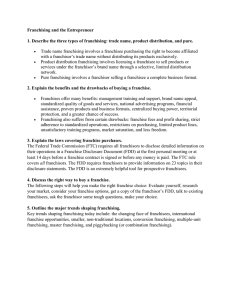
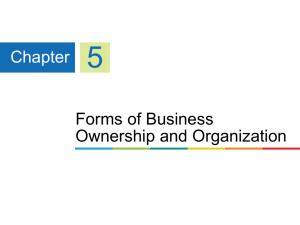

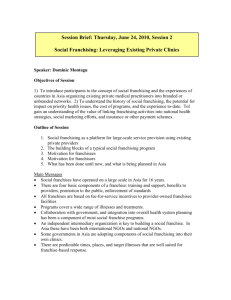


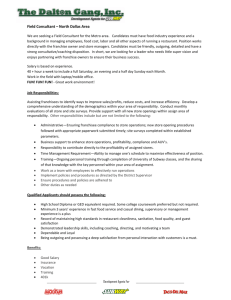
![[10]. Accessing Resources for Growth from External Sources](http://s2.studylib.net/store/data/005546472_1-5ce4dc20e590c3a704ef63f6f22a5a81-300x300.png)

